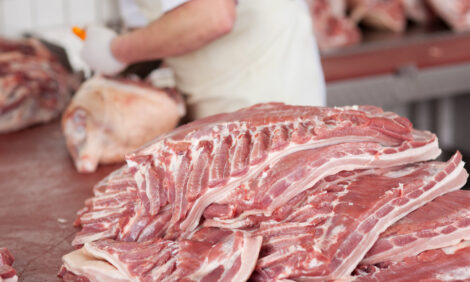



US Korea FTA - Affect on Market Access?
US - March 15 was recently announced as the implementation date for the Korea-US Free Trade Agreement. So how will this affect market access for US beef and pork, asks the US Meat and Export Federation?
As USMEF Economist Erin Borror explains, South Korea’s 40 per cent duty on imported beef will be phased out over 15 years for imports from the United States.
So the duty rate is set to drop to 37.3 per cent on March 15, then decline by 2.7 per cent each year until 2026. While this may be a rather slow tariff reduction schedule, Borror notes that the United States is the only major beef supplier to have reached such an agreement with Korea. Therefore, the US beef industry’s competitive advantage in this market will increase over time.
Over the past year, some imported pork products have been entering Korea on a duty-free basis. But this was only a temporary measure designed to alleviate Korea’s pork supply shortage caused by a severe foot-and-mouth disease outbreak in 2010.
The free trade agreement brings more gradual – but permanent – tariff relief, with all US pork products reaching duty-free status by 2016.
Ms Borror explains that this schedule will provide the United States with an advantage over most competitors and eventually put the US industry back on a level playing field with Chilean pork, which currently faces the lowest duty rates in the Korean market.
Beef
With beef, imports into Korea are currently paying a 40 per cent duty. Essentially that duty is reduced over the next 15 years, so immediately when the FTA is implemented in March that duty drops to 37.3 percent.
"We basically see a reduction of 2.7 per cent each year and duty-free zero by 2026. So you can imagine we’ll see quite the benefit, especially when duties drop to around 15 percent and below by about 2020.
"The US also has a competitive advantage through the free trade agreement because Australia and New Zealand, who are the other major suppliers to Korea, do not currently have free trade agreements. And Canada has always been a relatively small supplier, even prior to the BSE ban. But as they come slowly back into that market, they will also face the full 40 per cent duty," said Ms Borror.
Pork
Pork is an even more dramatic reduction. Duties in the more commonly traded items, which are frozen pork muscle cuts, are currently 25 per cent, and upon implementation will be reduced to 16 per cent and completely eliminated by 2016.
So by next year the US will see duties of 12 per cent, then 8 per cent, then 4 per cent, and then zero. So, a very fast reduction on the pork side. Chile will be essentially duty-free on all products by 2014, so we will be on a completely level playing field by 2016, she concluded.
TheCattleSite News Desk


